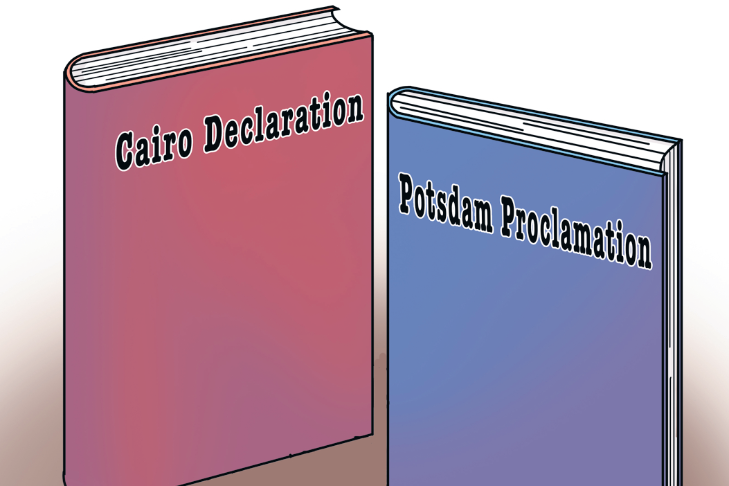Taiwan's return to China a vital part of post-World War II order

US' own words expose its broken promises
An analysis of the United States' handling of the Taiwan question shows that it has repeatedly violated its own commitments, both in words and in deeds.
In January 1950, the then US president Harry Truman publicly acknowledged that Taiwan had been returned to China following Japan's surrender. In his statement, he cited the 1943 Cairo Declaration, in which the leaders of China, the US and the United Kingdom agreed that Chinese territories seized by Japan, including Taiwan, should be restored to China. Truman made it clear that the US had no intention of acquiring special rights in Taiwan, building military bases there or intervening in China's internal affairs.
Former US secretary of state Dean Acheson, later reiterated the US position, stressing that Taiwan had already been handed back to China in accordance with the terms of Japan's surrender, and that no one, including the US, had ever questioned this legitimacy in the years that followed.
These are the original, unambiguous statements of the US government. Even in the aftermath of the war, Washington incorporated the Cairo Declaration, the Potsdam Proclamation, and Japan's Instrument of Surrender into its own official compendium of treaties and agreements, recognizing them as legally binding international documents. By doing so, the US effectively confirmed that Taiwan had been legally returned to China.
When China and the US began normalizing relations in the early 1970s, then US president Richard Nixon and his national security adviser Henry Kissinger also reaffirmed that there is only one China, and Taiwan is an integral part of China. Nixon made this commitment directly to former Chinese premier Zhou Enlai in 1972, stating that the US would not support any "Taiwan independence movement".
The same principle was enshrined in the Shanghai Communique and later in the Joint Communique on the Establishment of Diplomatic Relations between the People's Republic of China and the United States of America when Jimmy Carter was the US president. Both the English and Chinese versions of the documents were jointly confirmed, and under international law, all accepted language versions carry equal authority.
Yet decades later, the US has sought to reinterpret its own words and commitments. It now invokes a so-called "undetermined status of Taiwan", a narrative which it itself rejected in 1950 as a geopolitical tool against China. Such selective amnesia not only undermines the legal and historical basis of US policy but also exposes the US' tendency to weaponize law and history for its strategic convenience.
From Truman and Acheson to Carter, successive US leaders have publicly recognized Taiwan as part of China. Rewriting that history today does not change the facts; it only erodes Washington's credibility. True respect for international law begins not with new declarations, but with honoring one's own words.
Jie Dalei is an associate professor at the School of International Studies, Peking University.
The views don't necessarily represent those of China Daily.
If you have a specific expertise, or would like to share your thought about our stories, then send us your writings at opinion@chinadaily.com.cn, and comment@chinadaily.com.cn.


































